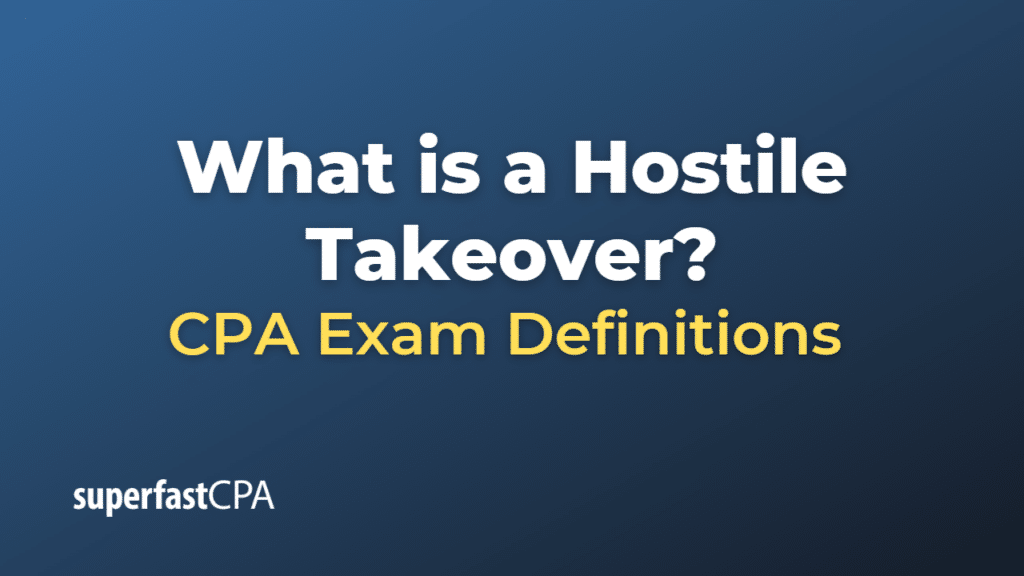Hostile Takeover
A hostile takeover is a type of acquisition in which the target company does not wish to be purchased or the management/board of directors of the target company reject the offer from the acquiring company, but the acquiring company continues to pursue it.
This generally happens when the acquirer, often another company or a group of investors, directly offers shareholders of the target company a premium (above-market price) for their shares to gain control, circumventing the formal agreement of the target company’s management.
A hostile takeover can be achieved in a few ways:
- Tender Offer: The acquiring company directly offers to buy the outstanding shares of the target company’s stock at a premium.
- Proxy Fight: The acquiring company persuades enough shareholders to vote in new management or board members who are open to the takeover.
- Creeping Tender Offer: The acquiring company gradually buys up the target company’s shares in the open market.
While hostile takeovers can sometimes lead to beneficial outcomes (like shaking up complacent management), they often have a negative reputation due to the way they are conducted against the wishes of the target company’s management. Also, they can lead to significant job losses and restructuring if the acquirer seeks to streamline or change the target company’s operations significantly.
Example of a Hostile Takeover
A notable example of a hostile takeover took place in 2005 when Oracle, one of the major companies in the software industry, succeeded in acquiring PeopleSoft.
Oracle had first announced its bid for PeopleSoft in 2003, but PeopleSoft’s management did not agree with the acquisition and rejected Oracle’s offer. Oracle persisted, raising its offer price and taking its proposal directly to PeopleSoft’s shareholders, a classic example of a tender offer.
Additionally, Oracle engaged in a proxy fight, urging PeopleSoft’s shareholders to elect a new board that would be more amenable to the acquisition.
Despite multiple attempts by PeopleSoft’s management to fend off the acquisition, including legal challenges and the use of a “poison pill” strategy (a tactic used by companies to thwart hostile takeovers by making the company less attractive to the acquirer), Oracle eventually acquired PeopleSoft in 2005.
This move considerably expanded Oracle’s customer base and product range, although it was also controversial due to concerns about reduced competition in the software industry.













